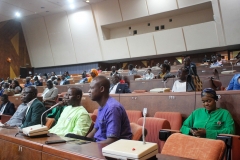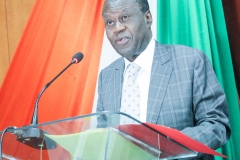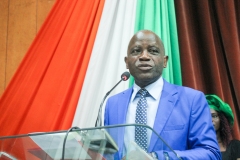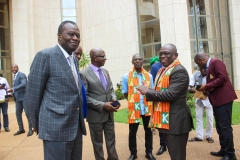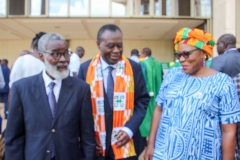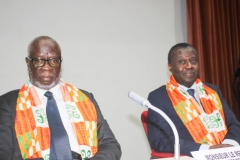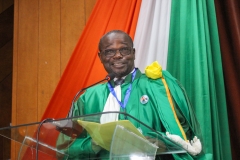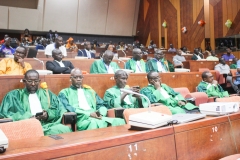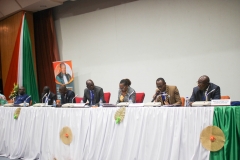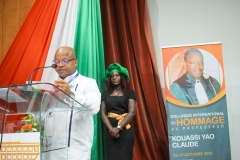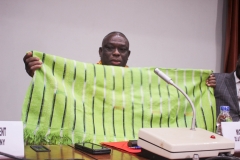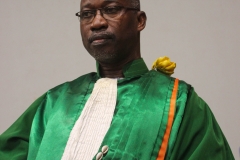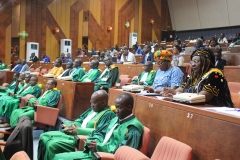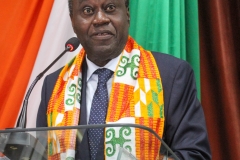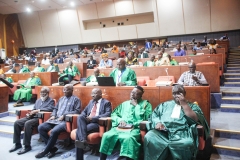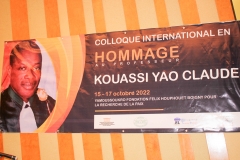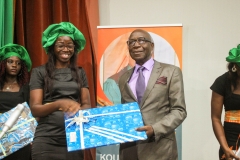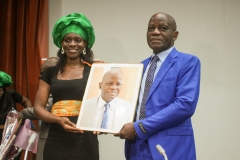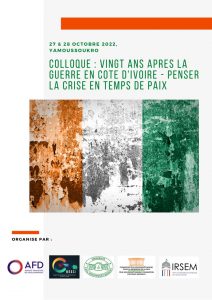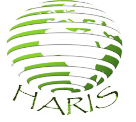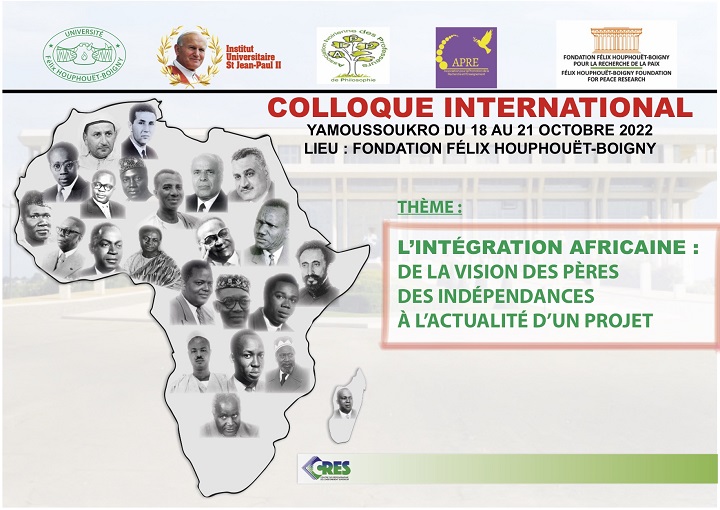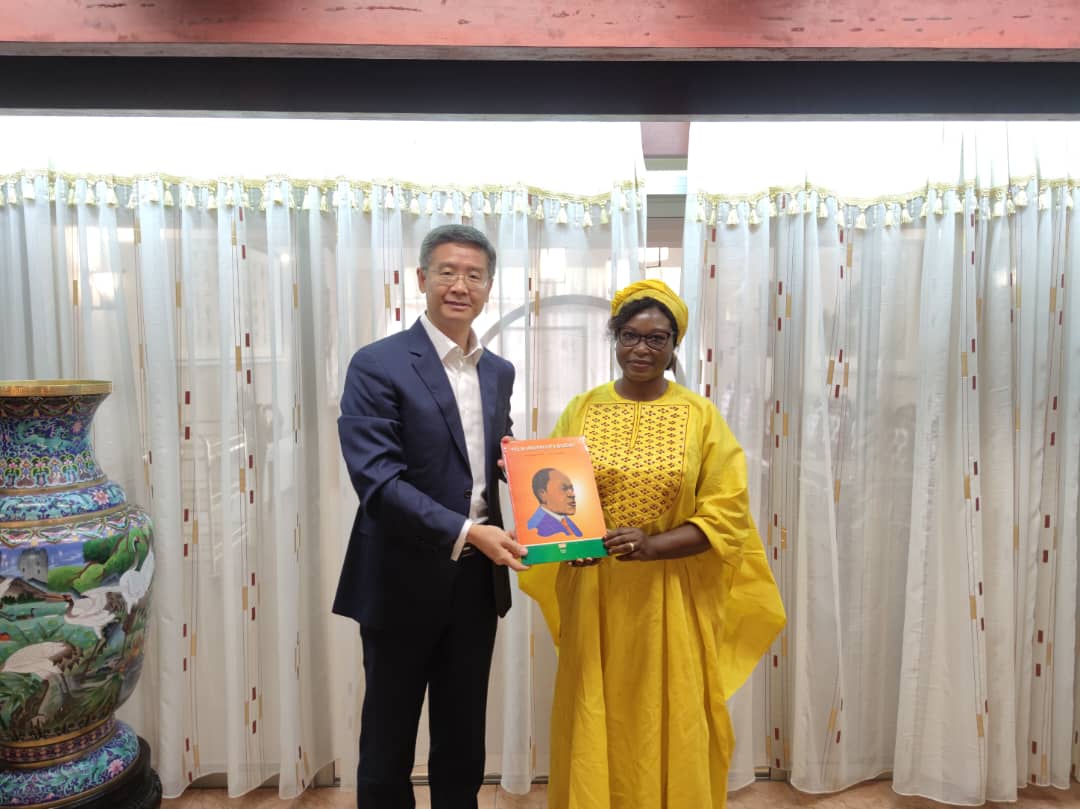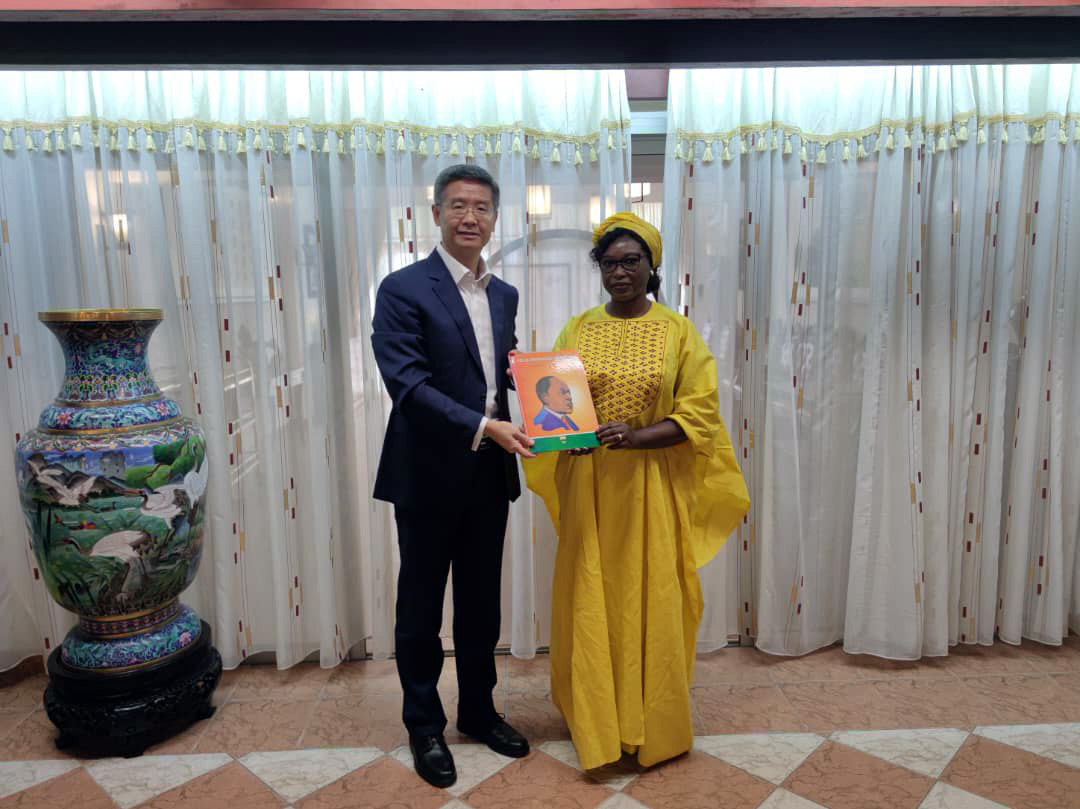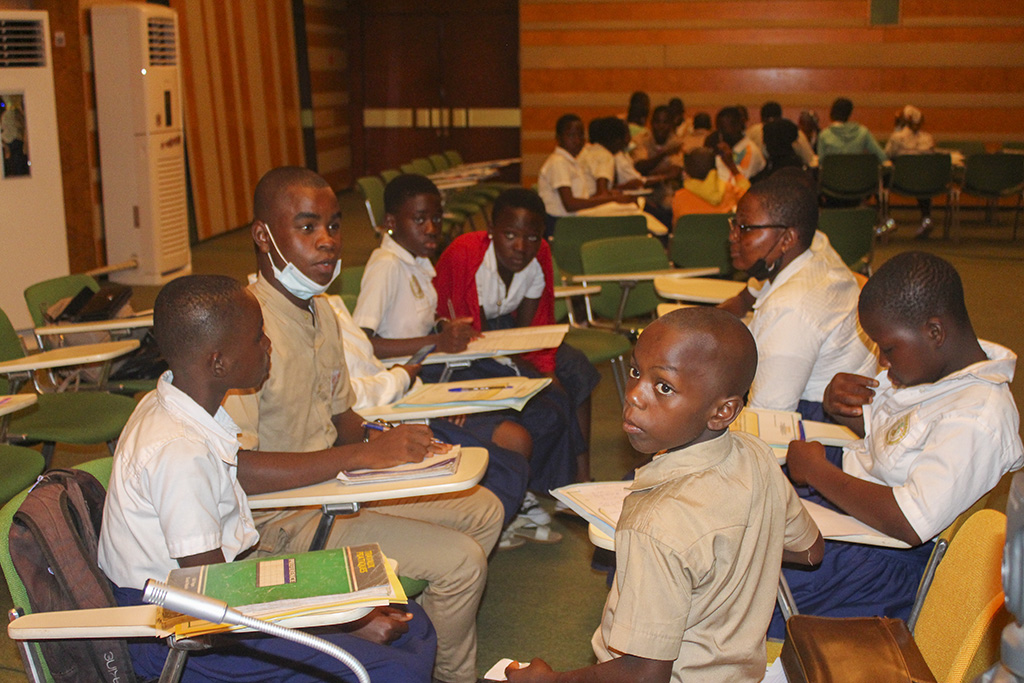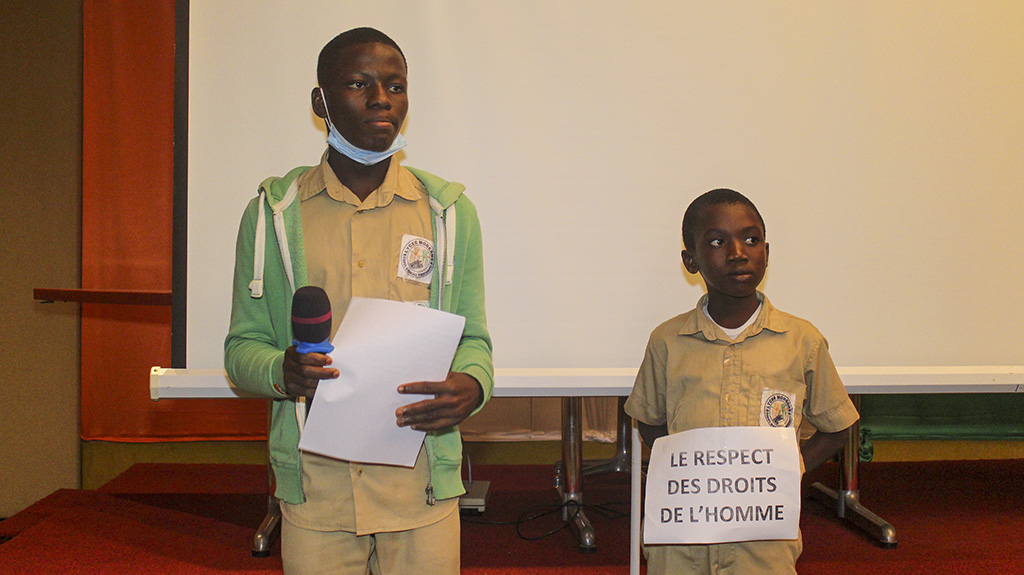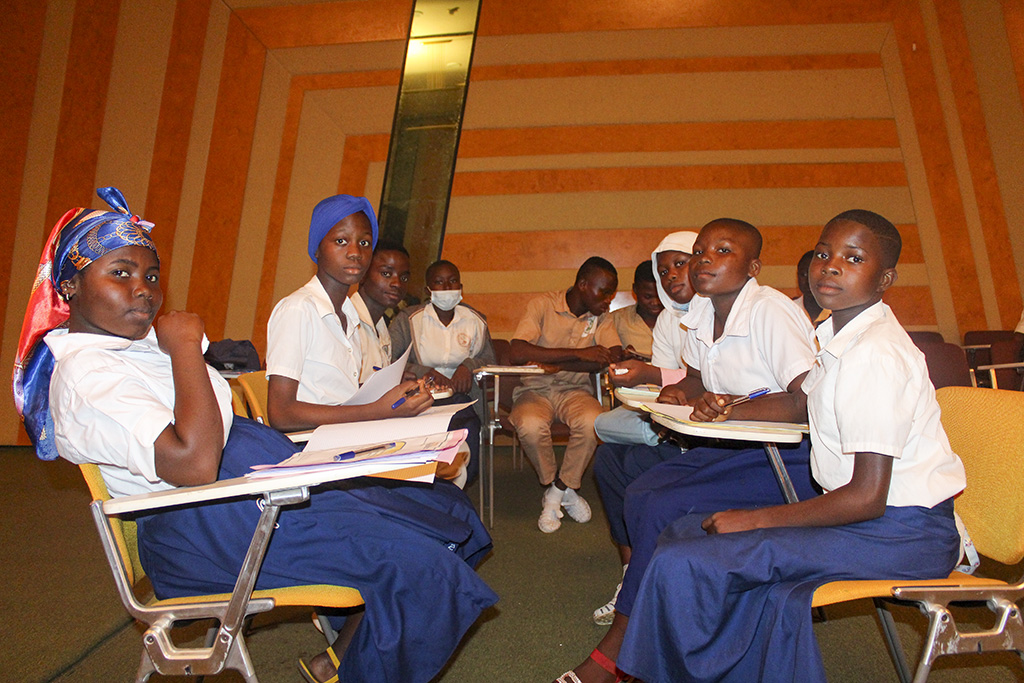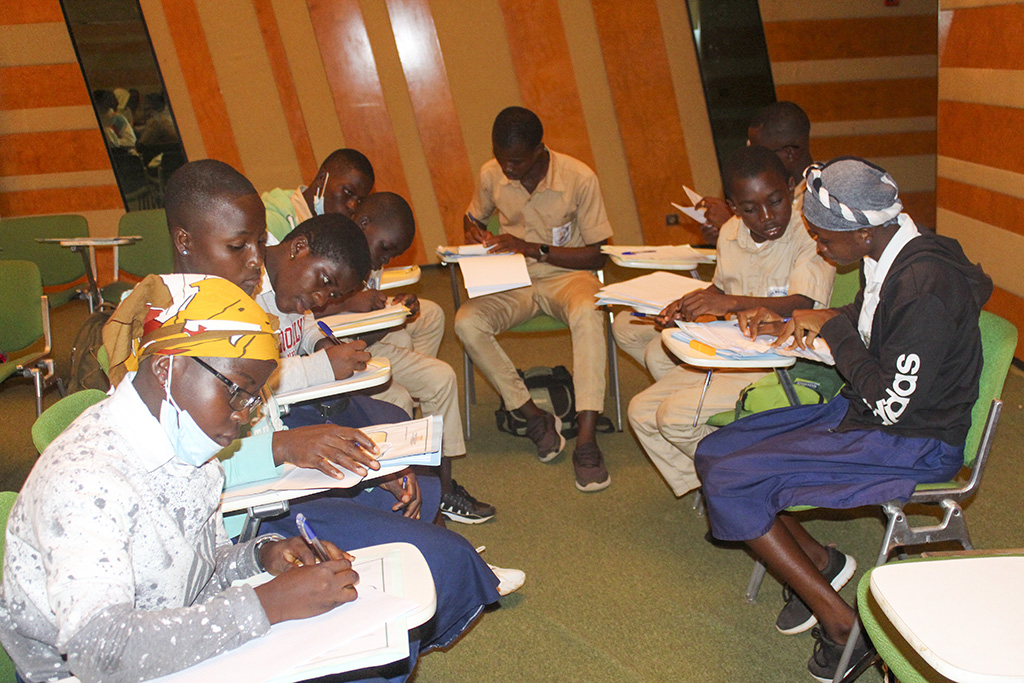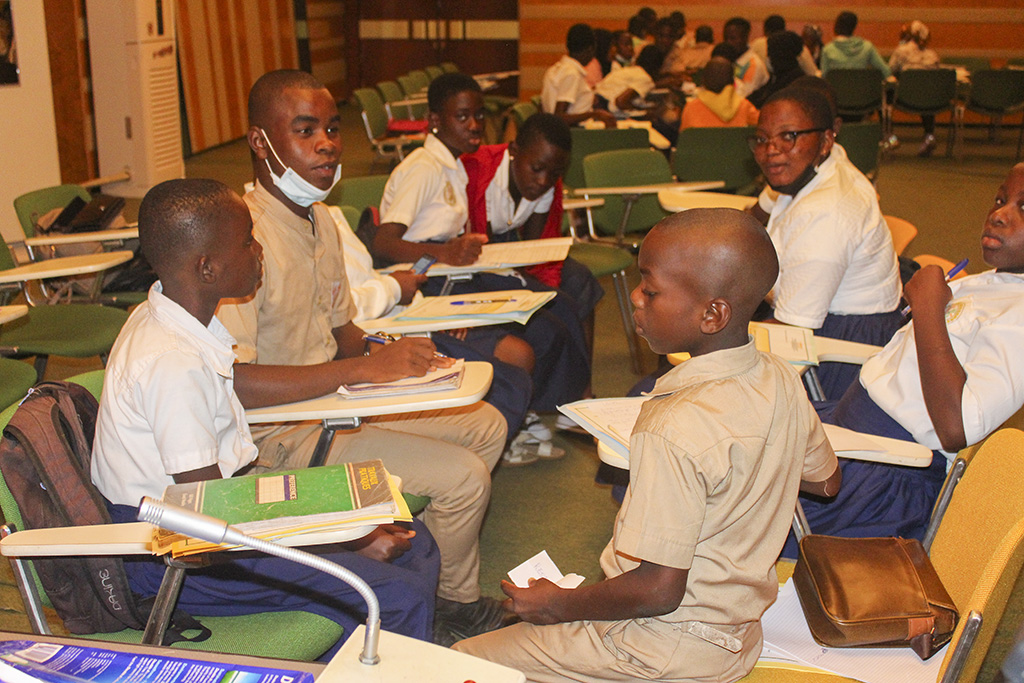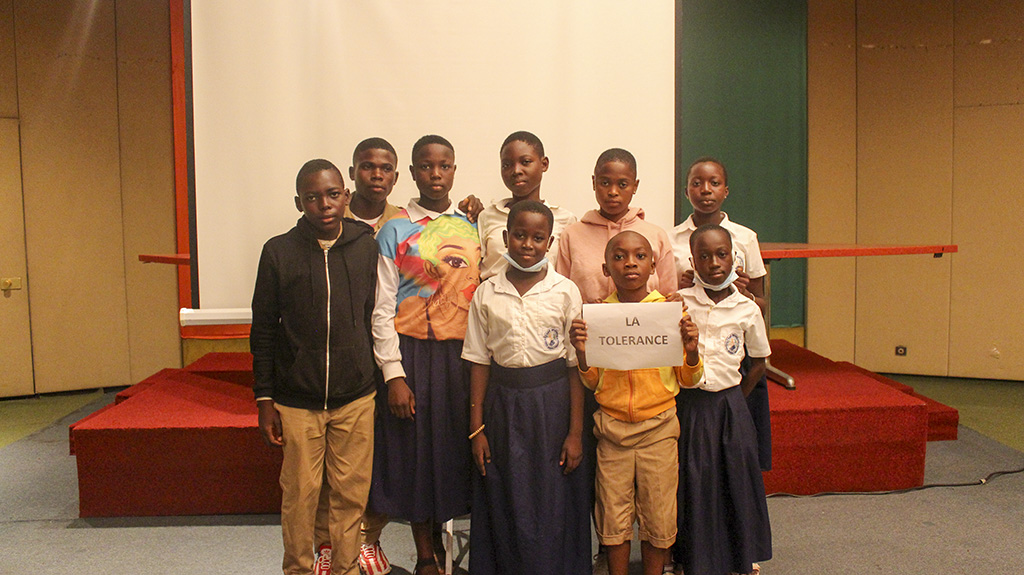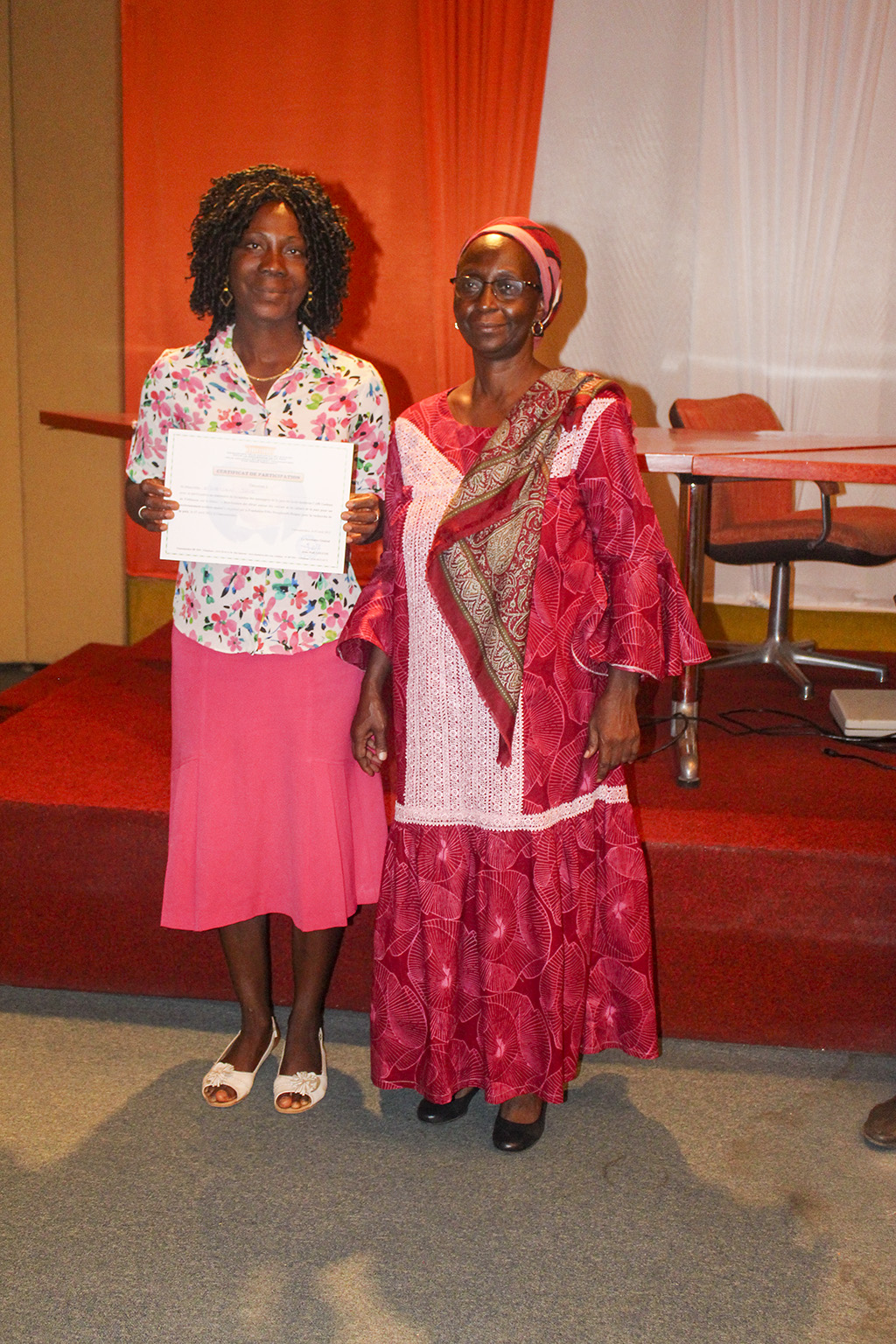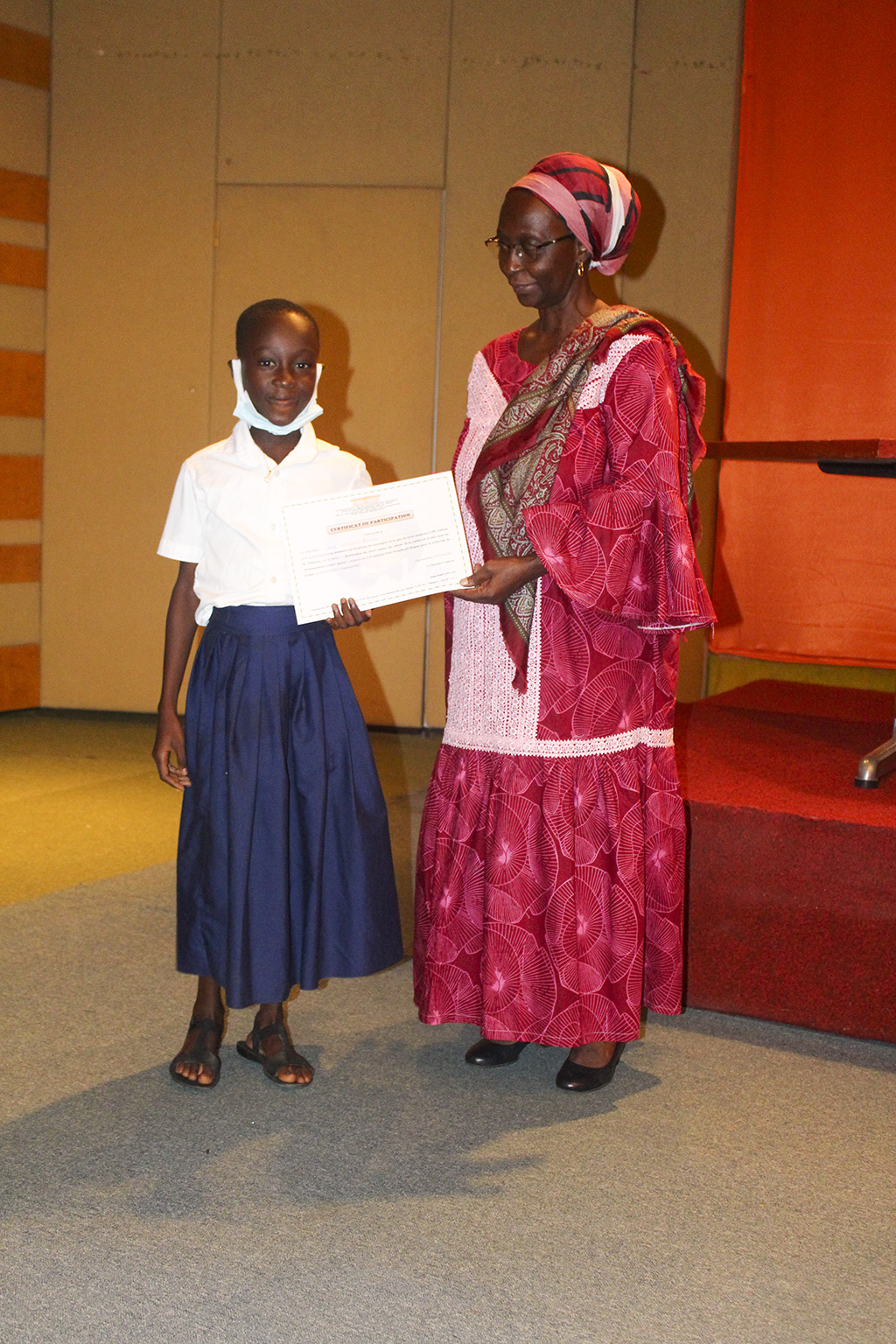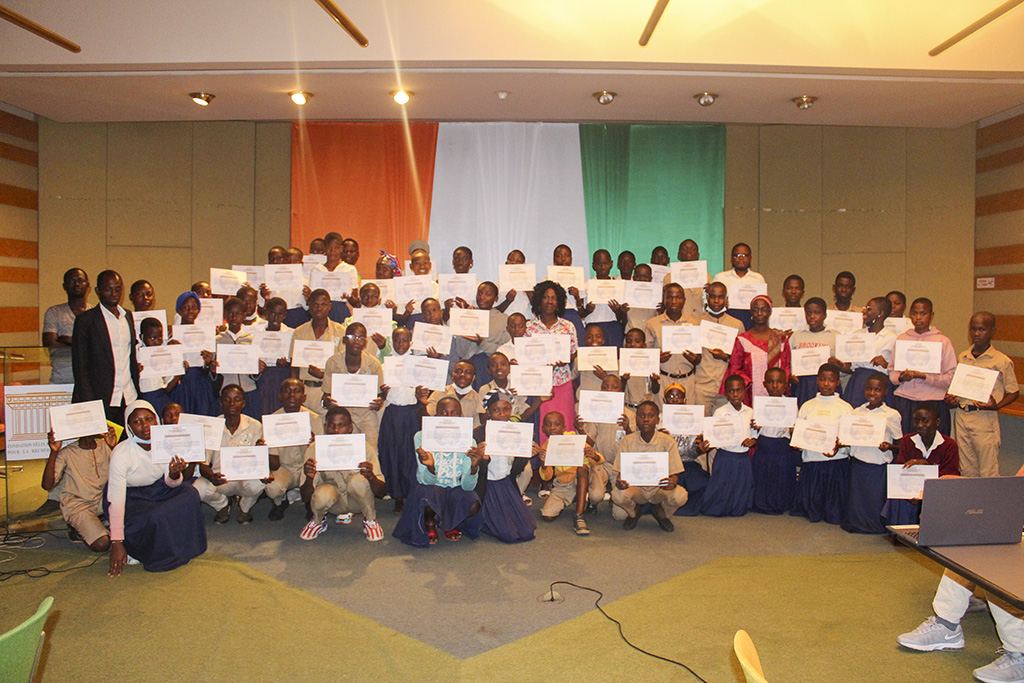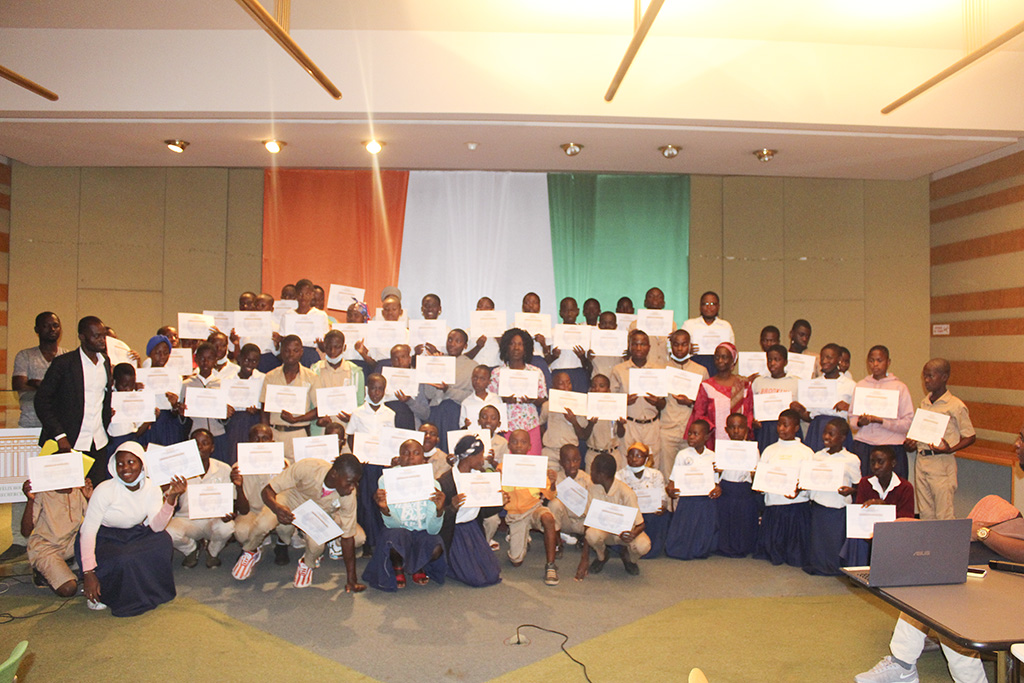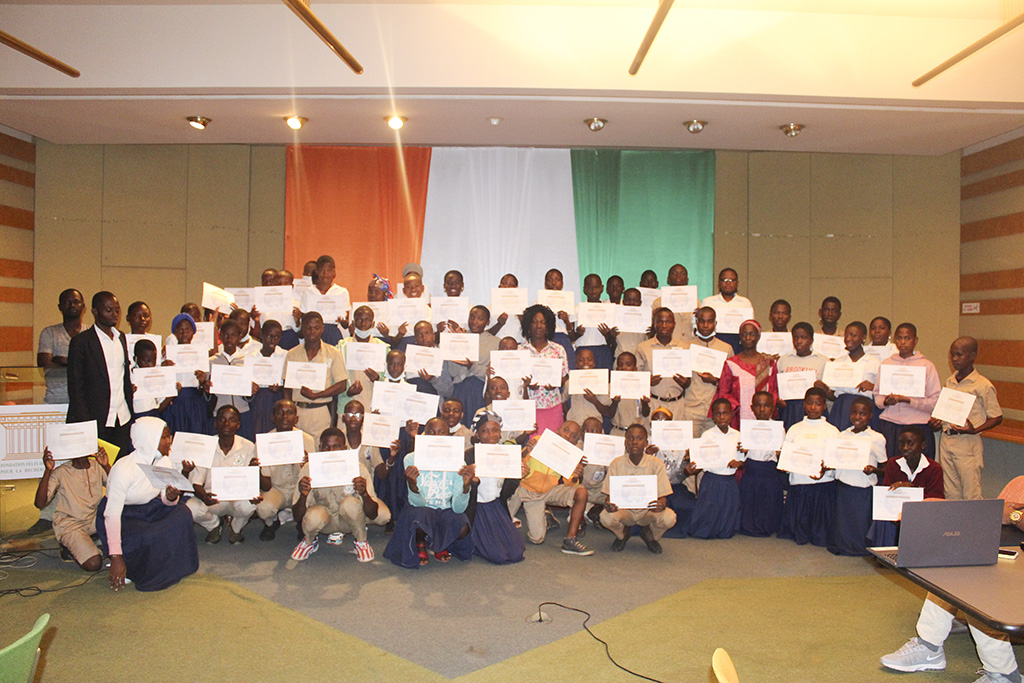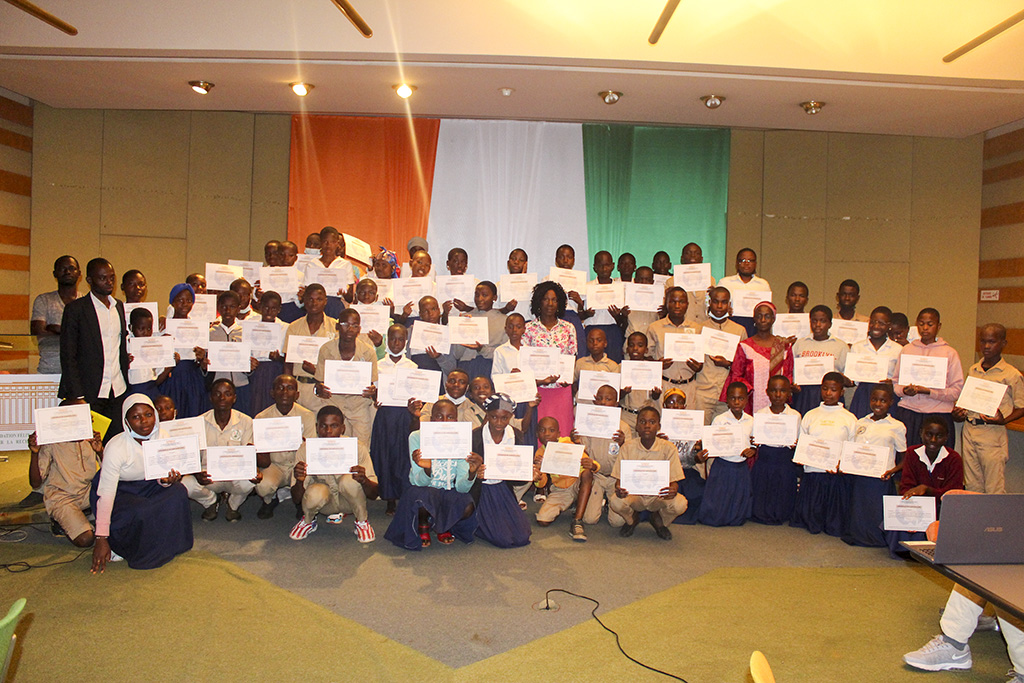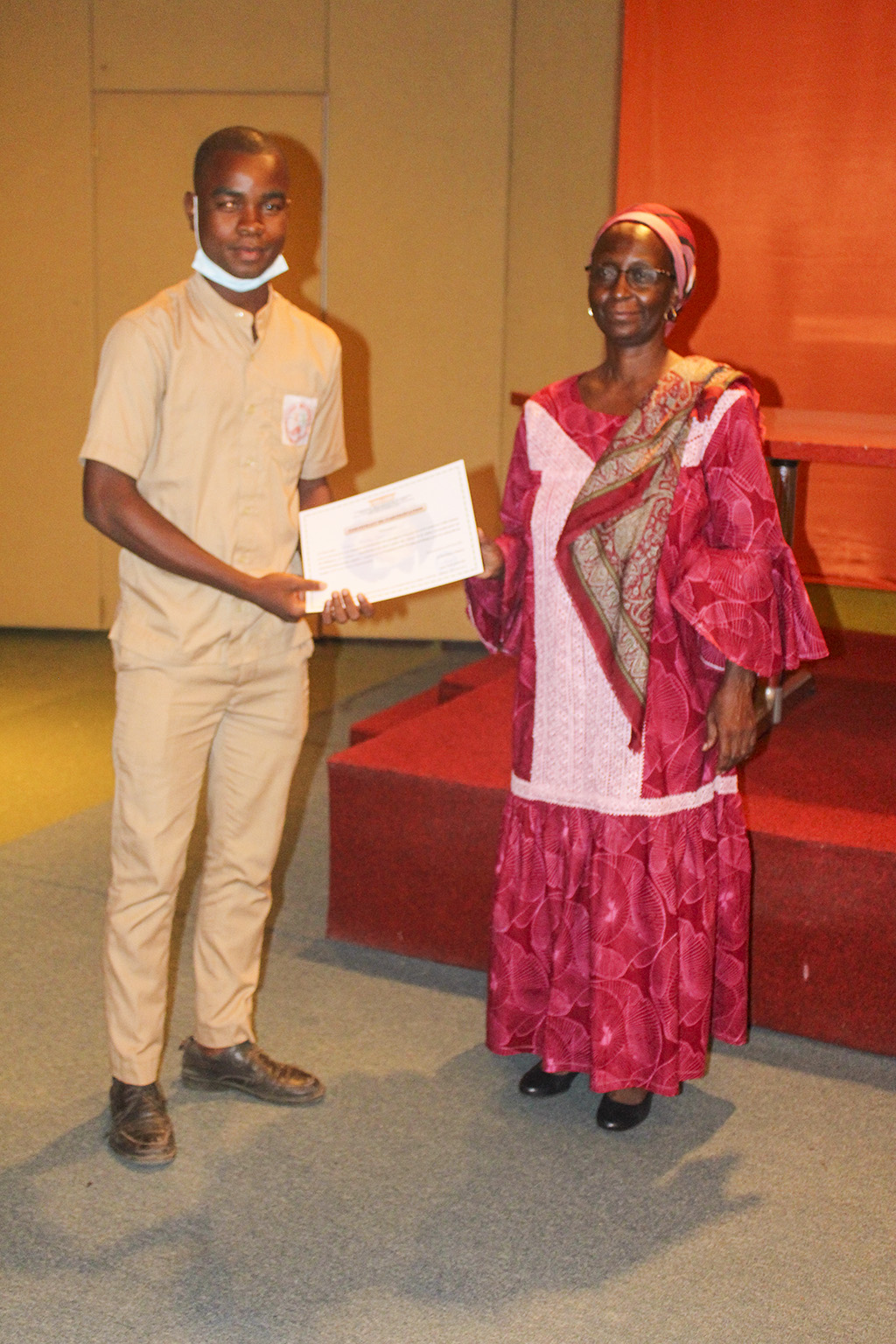Author Archive: admin-fondation
Call for Contributions for the Eighth Issue of Haris Review to be published in December 2022
For its Eighth issue to be published in December 2022, the Haris Review is looking for contributions on topics of International Relations, Geopolitics or Strategic Studies. Articles should be original and substantive. The standards of presentation of the manuscripts are those of the CAMES (to be consulted on the website of the journal www.revueharis.org). The manuscript must be between 5000 and 8000 words long and must include the full name of the author(s), the name of the institution to which the author(s) belong(s), the email address, a photo of the author(s) and an abstract in French and English of 300 words maximum with 7 keywords. E-mails (to be sent simultaneously): cerriuao01@gmail.com, contact1@revueharis.org
Calendar
Call for papers: October 3, 2022
Deadline for submission of articles: December 5, 2022
Return to authors after instruction: December 20, 2022
Return of corrected articles: December 27, 2022
Publication: December 31, 2022
Fees
Instruction : 25.000 F CFA (39 Euros)
Publication : 40.000 F CFA (61 Euros)
Contact: Dr. SILUE Nahoua Karim Tel (+225) 07 08 33 00 53 (WhatsApp) for the modalities of payment of the fees and all useful information.
Call for Papers for the Yamoussoukro International Colloquium on the descendants of migrants in West Africa
Yamoussoukro Symposium (Côte d’Ivoire)
Theme: “They are called “taboussés/taboussis”, “dankasa” … the descendants of migrants in West Africa
December 12-14, 2022
CALL FOR PAPERS
Argument
In West Africa, migration has been “a major socio-economic factor since the colonial conquests“. It is mainly internal migration in this subregion. Intensified in the colonial context, subregional migration was initially based on constraint, then became economic in the context of free labor migration. The countries of the hinterland (Burkina Faso, Mali, Niger) were perceived as a “reservoir” of labor and the countries of the coastal zone (Côte d’Ivoire, Ghana, Senegal, Nigeria) as “islands of prosperity. Gradually, a cumulative causality led to circular or definitive migrations. Whether premeditated or not, multi-annual, lifetime and permanent migrations contribute to the constitution of diasporas. The term diaspora, although accepted by the research community, is nevertheless the subject of epistemological debates and redefinitions in the West African geographical space. Indeed, to varying degrees, every country is both a home of emigration and a home of immigration.
The gradual settlement of migrants and their families in host countries has led to the construction of large diasporic communities. This has been done in different ways:
- migrants leaving their countries of origin left with their wives and had children in the host country,
- migrants, after a stay in the host countries, went temporarily to their countries of origin, contracted marriages there and returned to settle permanently,
- migrants have married native women in the host countries,
- descendants of migrants have married within the diaspora community, etc.
In fact, decades of immigration in host countries justify the presence of several generations of immigrants and descendants of immigrants. The case of the Ivory Coast is quite emblematic. As a major source of immigration in West Africa, there has been an upward trend in the number of immigrants, followed by a downward trend since the 1990s. The high proportion of non-nationals in the Ivorian population makes it unique, which gives rise to debate and confusion. We lose sight of the fact that the descendants of migrants were born in the host country to immigrant parents, grandparents or great grandparents. Whatever the reasons for their immigration, people of foreign origin need to integrate. The same is true for their descendants. To do so, they deploy various strategies on the economic, socio-cultural and legal levels. In fact, the lives of immigrants oscillate between complementary or opposing processes, namely:
- integration ie an adhesion and a sharing of values, logics that a will to belong to the host community while being recognized as a homogeneous whole;
- assimilation, i.e. blending into the host community while excluding any particularism.
The specific group of descendants of migrants is at the center of the reflections of this colloquium whose central theme is “Descendants of Migrants in West Africa“.
Concepts have been coined in national languages, both in the communities of origin of migrants, diasporic communities and host communities, to designate the descendants of migrants. These are, for example, the terms “taboussés/taboussis”, “dankasa”… whose history deserves analysis.
In the implementation of transnational migrations, transgenerational mechanisms and values have also been experimented. The integration of the descendants of migrants has singular stakes. Born in their parents’ country of immigration, they live in a sort of in-between situation. They are both from here (host country) and from elsewhere (country of origin). This situation is further reinforced when one of their parents is a national of the host country. This is the case in Ghana for the “dankasa”, a Hausa term for the descendants of immigrants born to Ghanaian mothers. West Africa being a large area of intra-regional migration and population mixing, the countries of the region, to varying degrees, are home to descendants of migrants. Côte d’Ivoire, Ghana, Senegal, Nigeria, Burkina Faso and Mali are examples of countries that are strongly impacted by the reality of the descendants of migrants. However, studies on this specific group are few and far between.
A fundamental question about the integration of descendants of migrants arises: How many generations of migrants’ children should still be considered in the immigrant population, when one is obviously not born an “immigrant”? In the host countries, the descendants of migrants constitute an increasingly important part of the population. This represents a fundamental demographic change in the countries of immigration. Because of their legal status, the descendants of migrants are divided between nationals of the host countries and those of the countries of origin. The latter return temporarily or permanently to their countries of origin for various reasons. Burkina Faso, for example, has for decades been receiving an increasing number of thousands of descendants of migrants from Côte d’Ivoire in search of enrollment in public universities.
A real reconstruction of identity is thus taking place in the host country, among the migrants and even more so among their descendants. To varying degrees, the latter maintain a link with both the country of birth and the country of origin, thus living in a “double registration”. Some descendants of migrants are progressively severing their ties with their countries of origin. They are then in advanced logics of integration and assimilation. Socio-cultural, economic, legal and political issues exist among the descendants of migrants in a context of various claims and denial of identity in the host and origin countries.
In the dynamics of transnationalism in the study of migration, papers could address the theme of the conference from the symbols of belonging, the logic of mobility, representations of territories, borders and nation-states of origin and the influence of communities.
Axes of thought
The major axes according to which the communications will be proposed are the following:
Axis 1: The socio-economic and cultural integration of the first generations of descendants of migrants and the issue of “return to the country
Axis 2: The questions of nationality/citizenship of descendants of migrants, their political commitments and statelessness
Axis 3: Identity constructions and feelings of belonging among the descendants of migrants: being from here and there.
Organizing institutions:
The colloquium is organized by the Félix Houphouët Boigny Foundation for Peace Research with partner universities: Université Félix Houphouët-Boigny, Université de Ouagadougou Joseph Ki-Zerbo, Université du Québec à Montréal.
Targeted participants
Various profiles of participants are expected to attend this conference. They are particularly, teachers-researchers from universities, researchers from research institutions, doctoral students. In addition to the world of higher education and research, participants are expected from experts in the field of migration, international institutions, NGOs, the political world and government institutions, etc.
Working languages
The working language of the conference is French. However, papers in English are accepted.
Scientific Committee:
President
Pr. MANDÉ Issiaka, Political Science Department, UQAM, Montreal, Canada.
Members
Pr. BANTENGA Moussa Willy, historian, Joseph Ki-Zerbo University, Ouagadougou, Burkina Faso.
Dr. M. C. CISSÉ Chikouna, historian, Université Félix Houphouët Boigny, Abidjan, Côte d’Ivoire.
Pr. LOUCOU Jean Noël, historian, Université Félix Houphouët Boigny, Abidjan, Côte d’Ivoire. Pr. NDIAYE Ndeye Dieynaba, jurist, Department of Legal Sciences, UQAM, Montreal, Canada.
Dr. SERHAN Nasser, Geographer, Université Félix Houphouët Boigny, Abidjan, Ivory Coast.
Pr. PICHÉ Victor, Honorary Professor, University of Montreal, Montreal, Canada.
Dr. M. C. PARÉ Moussa, historian, Université Félix Houphouët-Boigny, Abidjan, Ivory Coast.
Dr. M. C. SAWADOGO Boukary Mathias, historian, Université Félix Houphouët-Boigny, Abidjan, Ivory Coast.
Dr. M. C. SAWADOGO Mahamadou, sociologist, Joseph Ki-Zerbo University, Ouagadougou, Burkina Faso.
Dr. SOUKOUNA Sadio, political scientist, UQAM, Montreal, Canada.
Committee Secretariat
Dr. M. A. OUEDRAOGO Serge Noël, historian, Joseph KI-ZERBO University, Ouagadougou, Burkina Faso.
Dr. KABORÉ Adama, Abidjan, Ivory Coast.
Organizing Committee
President:
Dr. M. C. PARÉ Moussa, historian, Félix Houphouët-Boigny University, Abidjan, Ivory Coast.
Members
Dr. M. C. CISSÉ Chikouna, historian, University Félix Houphouët Boigny, Abidjan, Ivory Coast.
Dr. M. C. SAWADOGO Boukary Mathias, historian, University Félix Houphouët-Boigny, Abidjan, Ivory Coast.
Dr. M. A. OUEDRAOGO Serge Noël, historian, Joseph KI-ZERBO University, Ouagadougou, Burkina Faso.
Dr. KABORÉ Adama, Abidjan, Ivory Coast.
Terms of submission
Proposals for papers should include a title, first and last name, position, e-mail address, telephone number, institutional affiliation of the author(s) and an abstract (in French and English) of 250 words maximum, presenting the problematic of the subject, the theoretical and methodological framework and key words (maximum 5). The abstracts and articles, written in Times New Roman font, 1.5 line spacing, must be sent in Word format to the following address: colloquedescendantsdemigrants@gmail.com.
Practical dates
- July 30, 2022: Deadline for receipt of paper proposals
- August 15, 2022: Response to contributors/confirmation of participation in the conference
- October 30, 2022: Deadline for submission of papers
- December 12, 2022: Holding of the conference
- February 28, 2023: Submission of revised papers
- May 30, 2023: Publication of the proceedings of the conference.
Elements of bibliography
AL-ALI, N. and KOSER K., 2001, New Approaches to Migration? Transnational Communities and the Transformation of Home, Taylor & Francis Group.
ASIWAJU, A. I., 1976, “Migrations as Revolt: The Example of the Ivory Coast and the Upper Volta before 1945” in Journal of African History, vol. 17, no. 4, pp. 577-594.
BANTENGA M. W., 1996-1997, “De la connaissance de l’originalité démographique du pays moaaga à la mobilisation des populations dans le cadre des politiques coloniales (1888-1937)” in Science et Technique, vol. 22, n° 2, pp. 9-20.
BOUQUET C., 2003, Le poids des étrangers en Côte d’Ivoire / The importance of foreigners in Ivory Coast in Annales de Géographie, t. 112, n° 630, pp. 115-145.
BREDELOUP. S., 2004, ” La Côte d’Ivoire ou l’étrange destin de l’étranger ” in Revue européenne des migrations internationales, 19 (2), pp. 1-26.
CISSÉ C., 2013, Migrations et mise en valeur de la Basse Côte d’Ivoire (1920-1960), Les forçats ouest- africains dans les bagnes éburnéens, Paris, L’Harmattan, 311 p.
COLEMAN S. and MAIER K. “In, Of, and Beyond Diaspora: Mapping, Migration, and the Production of Space among Nigerian Pentecostals” in Diaspora: A Journal of Transnational Studies, vol. 19 n°. 1, 2010, p. 9-31. Project MUSE muse.jhu.edu/article/640334. COQUERY-VIDROVITCH, C., GOERG, O., MANDÉ, I. & RAJAONAH, F. V. (2003). Être étranger et migrant en Afrique au XXe siècle: Enjeux identitaires et modes d’insertion. Paris: L’Harmattan.
FAIST T. et al. 2011, The Migration-Development Nexus: A Transnational Perspective. Palgrave Macmillan.
FALL D., and FENEYROL O., 2011, Quelle protection pour les enfants concernés par la mobilité en Afrique de l’Ouest? Our positions and recommendations. s.n.
FARMA G., 2017-2018, L’entre-deux des descendants de migrants burkinabè en Côte d’Ivoire : Retour et intégration des étudiants ” diaspos ” dans le milieu universitaire au Burkina Faso, Master en médiation culturelle, Université de Lille 3, 149 p.
HILLMANN F. et al, editors, 2019, Trajectories and Imaginaries in Migration: The Migrant Actor in Transnational Space. Routledge.
http://www.ladocumentationfrancaise.fr/dossiers/d000073-immigration-et-politique- migratoire-en-france /immigres-assimilation-integration-insertion-some-definitions.
KABORÉ A., 2021, Mise en perspective historique des mutations migratoires voltaïques/burkinabè en Côte d’Ivoire (1960-2002), Thèse de doctorat unique, Histoire, UFHB, 421 p.
KIPRÉ P., 2010, Migrations en Afrique noire : La construction des identités nationales et la question des étrangers, Abidjan, Éditions du CERAP, 160 p.
MANDÉ I., 1995, ” Les migrations de travail des Voltaïques, une panacée pour l’économie ivoirienne de 1919 à 1960 ” in MASSA G. et MADIÉGA Y. G. (eds.), La Haute-Volta coloniale, témoignages, recherches, regards, Paris, Khartala, pp. 313-339.
KLEIS N. and THORSEN D., 2017, Hope and Uncertainty in Contemporary African Migration, Routledge.
OUÉDRAOGO S. N., 2019, ” Le dilemme de la nationalité chez les Burkinabè au Ghana ” in BREDELOUP S., DEGORCE A. and PALE A. (sous dir.), Se chercher en migration, Expériences burkinabè, Paris, L’Harmattan, pp. 77-97.
PICHÉ V. and CORDELL D. D., 2015, Entre le mil et le franc. Un siècle de migration circulaire en Afrique de l’Ouest. Le cas du Burkina Faso, Montreal, Presses de l’Université du Québec, Collection Les sociétés africaines en mutation, 406 p.
ROUCH J., 1956, “Migrations au Ghana” in Journal de la Société des Africanistes, volume 26, pp. 33-196.
SADOUNI S. and GAZIBO M., 2020, Migrations et gouvernance en Afrique et ailleurs, ed. Presses de l’Université du Québec, Project MUSE muse.jhu.edu/book/78362.
SAHOO A. K. and BRIJ M., 2007, Sociology of Diaspora: A Reader, Rawat Publications. SCHMOLL C., 2021, “L’approche transnationale dans les études migratoires. Retour sur 30 ans de travaux ” in SIMONNEAU D. (dir.), Dossier ” Vivre le transnational. Ancrages et circulations en débat “, De facto [En ligne], 28 | October 2021, online on 25 October 2021. URL : https://www.icmigrations.cnrs.fr/2021/09/15/defacto-028-01/
TOUNKARA D. G., 2010, ” Cinquante ans de politiques de la nationalité en Côte d’Ivoire “, in Outre-mers, Tome 97, n°368/369, pp. 159-175.
YODA H., 2019, Les colons d’origine voltaïque des villages de colonisation de la région de la Marahoue (Bouaflé et Zouénoula) : Entre immigration et intégration de 1933 à 2010, Thèse de doctorat unique, Histoire, UFHB, 554 p.
ZONGO M., 2003, ” La diaspora burkinabè en Côte d’ivoire: trajectoire historique, recomposition des dynamiques migratoires et rapport avec le pays d’origine ” in Revue africaine de sociologie, 7(2), pp. 58-72.
ZONGO M., 2016, ” La diaspora burkinabè en Côte d’Ivoire : entre vulnérabilité et quête d’appartenance ” in BREDELOUP S. et ZONGO M. (dir.), Repenser les mobilités burkinabè, Collection Études africaines, Paris, L’Harmattan, pp. 37-66.
Call for Papers for the International Colloquium on African Integration – 18 10 2022
THE FÉLIX HOUPHOUËT-BOIGNY UNIVERSITY OF COCODY, THE SAINT JEAN-PAUL II UNIVERSITY INSTITUTE OF YAMOUSSOUKRO, THE IVORIAN ASSOCIATION OF PHILOSOPHY PROFESSORS AND THE FÉLIX HOUPHOUËT-BOIGNY FOUNDATION ARE ORGANIZING THE INTERNATIONAL COLLOQUIUM ON AFRICAN INTEGRATION ON THE THEME: “FROM THE VISION OF THE FATHERS OF INDEPENDENCE TO THE CURRENT STATE OF AFFAIRS OF A PROJECT“
YAMOUSSOUKRO, IVORY COAST OCTOBER 18-21, 2022
CALL FOR PAPERS
The end of slavery and the slave trade saw the birth of a pan-Africanist movement in the United States and Europe in the early nineteenth century. This movement was initiated by black American and Caribbean intellectuals and politicians, among whom we can mention Edward Wilmot Blyden, Antenor Firmin, William Edward Burghardt Du Bois. The goal of the initiators was the realization of an integrated political organization of all the nations and peoples of Africa, especially since, for them, as Niamkey Koffi emphasizes, “the peoples of Africa and the Diaspora share a common history and destiny and (…) their social, economic and political progress is linked to their unity “1.
This ideal of unity was to be found at the genesis of the Organization of African Unity (OAU). However, among African leaders, there were “radicals” who favored a break with the Western world, and “moderates” who favored maintaining relations with capitalist states. It was in this context of internal divisions that the International Conference of Independent African States, organized in Addis Ababa in 1962, established the position of the “moderates”, led by Félix Houphouët-Boigny. The Organization of African Unity (OAU), born from this conference, includes the continental African States, Madagascar and the other neighbouring islands of Africa. Its objective was to strengthen the unity and solidarity of African states, to defend their sovereignty, to eliminate colonialism in all its forms and finally to promote international cooperation. With the consecration of the position of the moderates, the fathers of the African independence opted for an integration which should be concretized by successive stages as well at the level of the various fields of the human activity as within the framework of the regional communities such as envisaged by the Resolution CM/Res.464 (XXVII) of the Council of Ministers of the OAU “relating to the division of Africa into five (5) regions, namely: North Africa, West Africa, Central Africa, East Africa and Southern Africa”.
1 Niamkey Koffi, “Houphouët-Boigny, l’homme de culture et le panafricaniste”, in Editions de la fondation Félix Houphouët-Boigny, 2021, pp. 18-19.
These different regions are required to operationalize, within their territorial jurisdiction, the various resolutions adopted at the continental level, in order to achieve, by 2063, the vision of the African Union (AU): an integrated, prosperous and peaceful Africa, managed by its own citizens, “a continent politically united and founded on the ideals of Pan-Africanism and the vision of the Renaissance of Africa”2.
In the realization of the African integration project, numerous Resolutions were adopted by the Assembly of Heads of State, including the “Lagos Plan of Action “3 for the implementation of the Monrovia Strategy for the Economic Development of Africa. Chapter 2 of this plan stipulates that “in their development plans, Member States shall give a decisive role to industrialization for its effects on the satisfaction of the basic needs of the populations, the integration of the economy and the modernization of society (…) and shall proclaim the years 80-90 as the Decade of Industrial Development in Africa”4. The year 2000 should allow the creation of “an African Economic Community to ensure the economic, social and cultural integration of our continent”5.
At the regional level, the various Communities have also adopted measures and resolutions that should contribute to the advent of this integrated Africa. This is the case, for example, with the ECOWAS Vision 20206, adopted by the Conference of Heads of State and Government of the region in June 2007 in Abuja, Nigeria. This vision calls for the transformation of ECOWAS of states into an ECOWAS of peoples, an ECOWAS “without borders where the people have access to the abundant resources and are able to exploit them through the creation of opportunities in a
This ECOWAS vision, which is supposed to replace Vision 2020, reaffirms the relevance of the institution of a people’s ECOWAS by emphasizing the respect of fundamental freedoms within the framework of strong institutions. Adopted by the Members of the ECOWAS Parliament, meeting in plenary on December 4, 2021 in Abuja, during the second ordinary session of 2021, Vision 2050 intends to achieve, by 2050, “a fully integrated community of peoples in a peaceful and prosperous region with strong institutions that respect fundamental freedoms and work towards inclusive and sustainable development.
2 African Union, Agenda 2063. The Africa We Want, Aspiration 2. https://au.int/sites/default/files/documents/33126-doc 06_the_vision_english.pdf.
3 2nd Extraordinary Session of the Summit Conference of Heads of State and Government on Economic Issues, held in Lagos, Nigeria, from 20 to 29 April 1990.
4 Lagos Plan, Chapter: “Industry”, Introduction, point 52.
5 Preamble of the Treaty signed on June 3, 1991 in Abuja, Nigeria.
6 Community of West African States.
After more than sixty years of independence of African countries and implementation of the policy of African integration adopted by the fathers of independence, the Yamoussoukro symposium wants to take stock of the situation and question the hopes raised and the objectives aimed at, in order to open up avenues for solutions.
International and interdisciplinary, this symposium will bring together : Philosophers, Historians, Sociologists, Geographers, Jurists, Economists, Political scientists, Politicians, National, Regional and Sub regional Institutions, Linguists, Anthropologists, Ethnologists, etc….
This scientific meeting will be held from October 18 to 21, 2022 at the Félix Houphouët-Boigny Foundation for Peace Research, around the following axes
Axis 1: History of African integration
- The origins of the concept of African integration
- The vision of the Fathers of Independence
- Regional organizations and African integration
Axis 2: Assessment of African integration
- Political aspects of African integration
- The economic project
- Socio-cultural integration
Axis 3: Challenges and issues of African integration
- Sovereignty, governance and security challenges
- The mastery of knowledge and technology
- The conditions for true socio-cultural integration and economic independence
- Ecological challenges, the new multipolar order and capital formation
Objectives :
- To know the history of African integration and the community instruments
- Take stock of sixty years of integration in a multidimensional way
- To provide answers to new challenges that tend to weaken the acts of integration.
SUBMISSION STANDARDS AND TIMELINE
May 31, 2022: deadline for submission of paper proposals. Proposals, followed by an abstract of no more than 300 words, should be sent to the Scientific Committee of the Colloquium, at the address below.
They must be written in Word only (Times New Roman, 14, line spacing 1.15, justified), in the form of an abstract with the title of the paper, the axis and sub-theme of registration, the name of the author, his/her rank or function, his/her organization, his/her e-mail address, and his/her telephone number.
June 15, 2022: notification of acceptance or not of the abstract by the Committee.
August 15, 2022: deadline for sending the final papers
September 15, 2022: Sending of invitation letters.
October 18-21, 2022: International colloquium at the Félix Houphouët-Boigny Foundation for Peace Research, in Yamoussoukro.
Proposals for papers, with titles and abstracts, in French, are received until May 31, 2022 at the following address: colloqueintegrationafciyakro22@gmail.com
Telephone contact: +225 0102268222 (WhatsApp)
Call for Contributions for the Seventh Issue of the Haris Review to be published in September 2022
For its Seventh Issue to be published in September 2022, the Haris Review is looking for contributions on topics of International Relations, Geopolitics or Strategic Studies. Articles should be substantive and original. The standards of presentation of the manuscripts are those of the CAMES (to be consulted on the website of the journal www.revueharis.org). The manuscript must be between 5,000 and 8,000 words long and must include the full name of the author(s), the name of the institution to which the author(s) belong(s), the email address, a photo of the author(s) in ID format and an abstract in French and English of 300 words maximum with 7 keywords.
E-mails (to be sent simultaneously): cerriuao01@gmail.com, contact1@revueharis.org
Calendar
Call for papers: July 1st, 2022
Deadline for submission of articles: September 5, 2022
Return to authors after instruction: September 20, 2022
Return of corrected articles: September 27, 2022
Publication: September 30, 2022
Fees
Instruction : 25.000 F CFA (39 Euros)
Publication : 40.000 F CFA (61 Euros)
Contact: Dr. SILUE Nahoua Karim Tel (+225) 07 08 33 00 53 (WhatsApp) for the modalities of payment of the fees and all useful information.
Call for papers for the Colloquium on the theme “Twenty years after the war in Côte d’Ivoire: thinking about the crisis in times of peace”
GRESCI and FHB University are pleased to join forces with the Félix Houphouët-Boigny Foundation and IRSEM to hold a colloquium aimed at analyzing the legacy of the Ivorian crisis, with an emphasis on current and future dynamics, via this return to the past. twenty years after the outbreak of the civil war on September 19, 2002 This colloquium will take place from September 19 to 21, 2022 at the headquarters of the Félix Houphouët-Boigny Foundation for Peace Research in Yamoussoukro, Côte d’Ivoire.
Call for contributions for the sixth issue of the Haris Review to be published in June 2022
For its Sixth Issue to be published in June 2022, the Haris Review is looking for contributions on the themes of International Relations, Geopolitics or Strategic Studies. Articles should be substantive and original. The standards of presentation of the manuscripts are those of the CAMES (to be consulted on the website of the journal www.revueharis.org). The manuscript must be between 5000 and 8000 words long and must include the full name of the author(s), the name of the institution to which the author(s) belong(s), the email address, a photo of the author(s) in ID format and an abstract in French and English of 300 words maximum with 7 keywords.
E-mails: (to be sent simultaneously): contact1@revueharis.org and cerriuao01@gmail.com.
Calendar
Call for papers: April 1, 2022
Deadline for submission of papers: June 5, 2022
Return to authors after instruction: June 20, 2022
Return of corrected articles: June 27, 2022
Publication: June 30, 2022
Fees
Instruction : 25.000 F CFA (39 Euros)
Publication : 40.000 F CFA (61 Euros)
Contact: Dr. SILUE Nahoua Karim Phone: (+225) 07 08 33 00 53 (WhatsApp) for the modalities of payment of the fees and all useful information.


